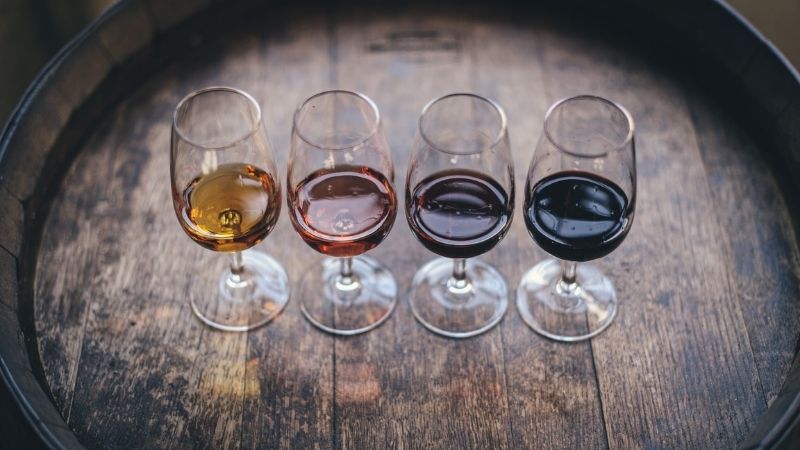
The Best New Fruit Wines to Try
Orange is the new wine?
Elderberry Wine is not only a popular Elton John song, but a delicious beverage made from fermenting elderberries. Fruit wines do exist and are quite simply wines that are made from fruits other than grapes. Yes, wine can be made from plums, pineapple, cherries, oranges… The list goes on! Fruit wines can be made from virtually any plant matter that can be fermented.
Recommended for you: Explore the origin of wine and learn how to prepare your own formal wine tasting with a free 4-week course!
Flavour and juice from plants that are used for making fruit wine are extracted either by pressing or stewing and then this pulp is fermented. Few foods other than grapes have the natural sugar, acid, and tannin quantities available to create a stable and balanced wine, so before fermentation, the pulp might need to be adjusted in one or more respects in order to create something drinkable.
What is the best fruit wine?
Fruit wine may seem like a cheaper alternative to traditional grape wine but it can make delicious beverages that are fruity and fresh. Cherry wines are popular in Michigan in the United States and winemakers in this area even produce different varieties of cherry wine.
Pineapple wine is quite popular in Mexico, where it is called Tepache. Tepache is made from the rind and peel of pineapples and is normally sweetened with sugar and seasoned with cinnamon. It is popular among street vendors and is served either in a clay mug or a clear plastic bag with a straw inserted for easier travel.

Due to Covid-19, home brewing really picked up as a new hobby for some, or due to a ban on alcohol in certain countries. Many wine and beer drinkers turned to home brewing to quench their thirst. Suddenly, the fruit in the fruit bowl became more than just a part of your ‘five-a-day’!
The price of pineapples rose dramatically, with reports of increases of up to 150% due to this alcohol ban. This tropical fruit contains lots of sugar and natural yeasts on the skin making it easy to ferment into a powerful ‘elixir’.

What is orange wine?
Unfortunately, the same cannot be said for the price of oranges. Contrary to what the name suggests, orange wine is not actually made from oranges. Orange wine, or sometimes called amber wine, is made from grapes. Orange wine might be the trendiest wine in the boutique wine bar at the moment but this style is nothing new.
The first orange wines were made thousands of years ago in countries like Georgia and Armenia. Regular white wine is made by harvesting grapes, pressing them, and then fermenting the juice separate from the skins. To make an orange wine, the juice and skins ferment together, similar to how red wine is made. This contact time with the grape skins is called maceration. Grape skins contain all the good stuff – flavour, tannins, and colour — and are where red wine gets its characteristic colour, flavour, and mouthfeel from.
What does orange wine taste like?
In orange wine, extended maceration with the skins is what gives this wine its characteristic amber-hue, flavour, and mouthfeel. This maceration time can vary from a couple of days up until one year! These wines are described as big, bold, and robust, and they pair really well with a variety of foods. Expect flavours of bruised apple, honey, and sourdough. These wines are often made in a minimalist way with little or no additives so you may want to prepare yourself for something entirely unique and funky!
Want to learn more? Join our new Wine Appreciation course today!



